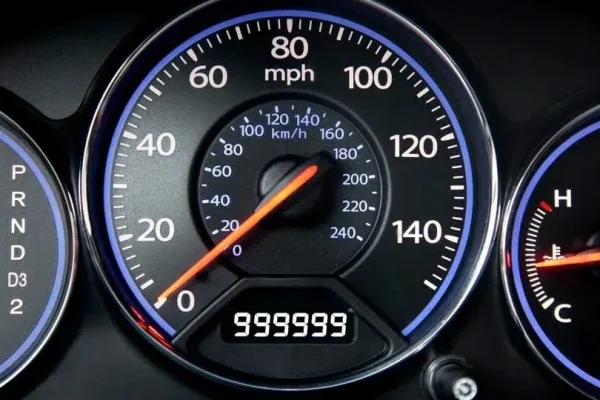Exceeding Car Insurance Mileage Limits – What Should I Do?
Exceeding Car Insurance Mileage Limits, What Should I Do? If you’re worried about what happens when you exceed your car insurance mileage limits, rest assured, it’s not as dire as it may seem. Your insurance company won’t automatically deny your claim just because you’ve driven more than initially estimated. However, it’s essential to take specific steps to ensure your insurance remains valid. In this article, we’ll delve into the details of what to do if you find yourself exceeding your mileage limits.
Understanding the Relationship Between Mileage and Car Insurance
While mileage isn’t the sole factor that determines your insurance premium, it’s a significant consideration for insurance companies. They use annual mileage as a way to assess the risk of accidents associated with your driving habits. More time on the road often translates to higher premiums. Additionally, factors such as traffic density in your area can influence your insurance costs.
When you apply for car insurance, you’ll be asked to provide your estimated annual mileage. It’s crucial to be as accurate as possible in this regard, as underestimating your mileage can potentially invalidate your insurance. Insurance companies usually reserve the right to verify your mileage, either at the outset or during the policy term.

Is There a Specific Insurance Mileage Limit?
There isn’t a rigid insurance mileage limit per se. Insurance companies typically use your annual mileage to calculate your premium, and they may suggest appropriate coverage based on your estimate. However, some insurance plans, particularly those designed for low-mileage drivers, might impose mileage limits. Therefore, it’s essential to be truthful and precise when estimating your annual mileage to avoid complications later.
What Happens if You Exceed Your Mileage Estimate?
If you find yourself exceeding your estimated annual mileage, the consequences may vary depending on your insurance plan. Generally, minor discrepancies in your mileage won’t lead to policy invalidation. However, if the deviation is significant, it could raise concerns. Deliberately stating a lower mileage to obtain a cheaper premium is unacceptable and could lead to policy issues.
In case you do surpass your mileage estimate, it’s crucial to inform your insurance company promptly. Transparency is key here. Failing to disclose changes in your driving habits could result in problems when making a claim. Your insurer may either increase your premium or make adjustments to your policy to align with your actual mileage.
Will Exceeding Mileage on Your Insurance Increase Your Premium?
The impact on your premium for exceeding your mileage estimate can vary among insurance companies and individual policies. Typically, minor deviations won’t lead to substantial premium increases. However, significant mileage discrepancies might prompt your insurer to adjust your premium accordingly.
While it’s challenging to provide a definitive answer, it’s advisable to consult your insurance company directly to understand the specific consequences for your policy.

What You Can Do If You Exceed Your Mileage Estimate
If you discover that you’ve exceeded your mileage estimate, take these steps to ensure your insurance remains valid:
- Contact Your Insurer: Inform your insurance company about the mileage change as soon as you become aware of it.
- Discuss Options: Consult with your insurer to understand the available options and potential adjustments to your policy.
- Assess Further Mileage Increase: Evaluate your new driving habits to prevent further mileage increases.
-
Accept the Adjusted Premium: Be prepared for a reasonable increase in your premium if necessary.
In conclusion, exceeding your car insurance mileage estimate isn’t a cause for panic. Open communication with your insurer and a willingness to adjust your policy as needed can help you maintain valid coverage. Remember that honesty is the best policy when it comes to your insurance, and it’s always better to address changes promptly than to face complications later.
Consider a Mileage Blocker: For those looking to proactively manage their mileage, a mileage blocker can be a useful tool. It allows you to halt mileage recording temporarily, primarily for vehicle testing purposes. However, using a mileage blocker for unethical or illegal purposes is not advised.


Leave a Reply